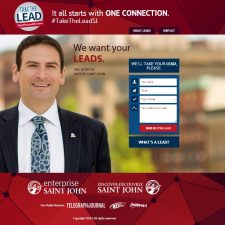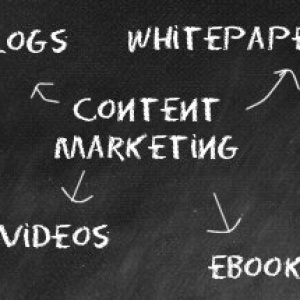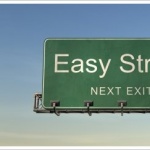 When it comes to marketing, any company really has three options to get it done:
When it comes to marketing, any company really has three options to get it done:
- Hire an in-house marketing person/team
- Make marketing the responsibility of someone already on staff
- Outsource it to a consultant or agency
Or some combination of these.
If you’re reading this article you’re probably researching the options right now.
Know that when outsourcing marketing you don’t necessarily have to outsource ALL of your marketing. You may choose to keep some areas in house, and outsource those parts that require specialized expertise that your staff do not possess.
A note about outsourcing vs off-shoring
Outsourcing is different from Off-shoring. Off-shoring refers to relocating some part of your operations to another country (usually overseas).
When you outsource, you’re hiring a 3rd party to do the work. This 3rd party could be in your own city, province, country…or overseas.
If your company pays another company to do anything from manufacturing your products, handling your accounting or cleaning your offices – you’re outsourcing.
Outsourcing is an option you have – it may or may not make sense for your organization. To help in this decision I’m going to lay out a whole lot of pros and cons, benefits and drawbacks, to outsourcing marketing. I hope I can shed new light on the decision.
I’m actually reluctant to categorize many of these into a list of “pros and cons” because they really are subjective. What one person considers a drawback, another may consider a perk…and vice versa.
So here is a list of things to consider, in no particular order.
1. Say Goodbye to HR Headaches When You Outsource
When you hire a marketing consultant he or she does not become one of your employees. This means you’re free of many HR headaches that come with having employees. Everything from staff disputes, to covering vacation, sick time or long term leave.
2. When Outsourcing, You Aren’t Obliged to Hire Full Time
If you were to hire an in-house marketing manager it would be difficult to not give that person full-time hours…regardless of whether or not you actually need them for 35 to 40 hours a week.
Outsourcing makes a lot of sense when the job doesn’t require full-time attention, but you want it done well.
You’ll know the cost up front and can budget it out.
3. Outsourcing Gives You Specialized Expertise
Marketing is a pretty broad term; and it’s not all taught at University. If your organization needs specialized expertise (such as Inbound Marketing) you may find it to be scarce in the workforce.
This is when many organizations look to outsource, it allows them to get someone with specialized skills who stays up to date on the latest trends in their industry.
This specialist can hit the ground running because they already have the necessary knowledge and experience.
4. You Usually Can’t Closely Monitor a Company You Outsource To
Most of the time, your outsourced help will work from their own office. Some employers may not be comfortable paying someone to do work for them if they can’t keep tabs on that person as they would with an employee.
But here’s the thing…when it comes to your actual employees you’re paying them by the hour…so if they spend two hours a day socializing with colleagues and surfing Facebook, this would be a problem.
When you hire a consultant you’re paying them to get a job done. So what they do with the rest of their time is not an issue because they are not on your clock.
If you are outsourcing by the hour the agency has probably given you a time estimate before starting. Much like when hiring a lawyer or accountant it becomes about trust and integrity. If you think the person you’re hiring is going to bill you for hours in excess of what they were actually working, then maybe it’s wise to hire someone you trust instead.
5. Less Face Time
When outsourcing your marketing to a consultant it’s important to make sure that you’re comfortable having less (if any) face-to-face meetings together, compared to what you’d have with your staff in the local office.
These days, and depending on the type of marketing being outsourced, not being onsite every week shouldn’t hinder a consultant. The company you outsource to will know up front what will be involved and can discuss this with you.
The issue of face time is more about your own personal comfort level. Some business owners are just more comfortable having face-to-face conversations…others prefer email updates, some like the phone…many are happy to have one less person knocking on their door.
How do you feel about it?
6. Outsourcing Reduces Overhead
Your outsourced staff already have their own office and all the computer equipment, software and office supplies they need to do the job.
7. Outsourcing Enables Easier Cost Control
When you outsource you’ll know the yearly cost of that part of operations up front. So, for example – if you’re hiring a consultant to do X, Y and Z, he or she can tell you what the total cost per year will be.
When hiring an employee it gets murky. Let’s say you hire a marketing manager at $40,000 per year. The true cost of that employee is actually more than $40,000 per year by the time you factor in things like benefits, training, EI and CPP. How much more? The true cost is estimated to be an extra 40 to 50% more than an employee’s base salary.
There are other things that can get murky as well, such as if that employee needs an extended leave of absence, quits, etc.
8. Relieve Yourself of Hiring Time and Costs
To hire an employee someone has to write a job description, pay to have it posted on job boards/newspaper, receive applications, review applications, book and conduct interviews, make follow up calls.
Then you move into the time and costs involved in getting a new person on the books, organizing and setting up an office, onboarding and training.
This all just comes with the territory of having staff, but may not be worth it if all you really need is, for example, someone to execute your inbound marketing strategy.
9. When Outsourcing, You Don’t Get a Hand Around the Office
In smaller companies, or where the marketing needs of a company aren’t 35 hours a week, the decision is sometimes made to create a position that is a combination of several different jobs…including marketing.
For example, the on staff “marketing person” might do the marketing, but also be the fill-in at the front desk, take care of random admin duties and handle customer service calls when an agent calls in sick.
When you outsource marketing you won’t have someone on staff who can pitch in with other things when he or she is not busy. Are you OK with this?
10. Being Out of the Loop
Unless you put a few parameters in place the agency or person you outsource to could get out of the loop as to what’s happening at your company internally.
An onsite staff person will catch the day to day buzz around the office and generally know what’s happening and who’s who.
This may or may not make a difference and should be discussed.
If necessary you can include your outsourced help on certain emails and memos that are sent to all employees. If you have an employee and/or company newsletter, ensure they receive it.
11. The Company You Outsource to Could Go Out of Business
Just as you run a business, you’re outsourcing to another business. If hard times should come they may close their doors.
If they give you notice and a heads up then you can plan for it. If they don’t, it would be like an employee who one day up and quits. It’ll throw a wrench in things until a transition is made.
Let’s say that the odds of a total vanishing act are very rare, but there are a few things you can do to reduce the impact if it ever happened.
You should always have any necessary information you’d need if you had to take over or switch responsibility to someone else on zero notice. This includes website login details, account information and usernames and passwords. This will vary depending on what type of work the third party was doing for your organization.
12. You Might Feel More Vulnerable to Breaches of Privacy
When you outsource, the consultant will be privy to some information you may not want “out there”. As with hiring an employee, it’s important to feel comfortable with this…and as with hiring an employee you can have the consultant sign a non-disclosure agreement.
13. Conflicts of Interest
Is the agency you’re considering hiring also working with one of your direct competitors? When you hire an employee you can pretty much count on the fact that while working for you they’re not also working for the competition. When you outsource, the agency will have numerous clients.
Before agreeing to work with an agency it’s perfectly fair to ask if they are also working with any of your direct competitors. They may not be able to give you specifics, but should be able to let you know ‘yes or no’ and whether or not they are doing the same type of work…or helping them with completely different things.
The decision then becomes up to you.
14. Outsourcing Gives You Access to Higher Quality Talent
Consultants are experts in their field and often bring many years of experience to the table. Finding this level of knowledge and experience in the local workforce is not always possible.
——————–
Thanks for reading, I hope this helped!
![]()
As always, if you’re considering outsourcing your marketing or hiring a marketing consultant please contact me. I’m happy to discuss some options and how I can help you!
You May Also Like –> Benefits of Hiring a Marketing Consultant














Comments are closed.